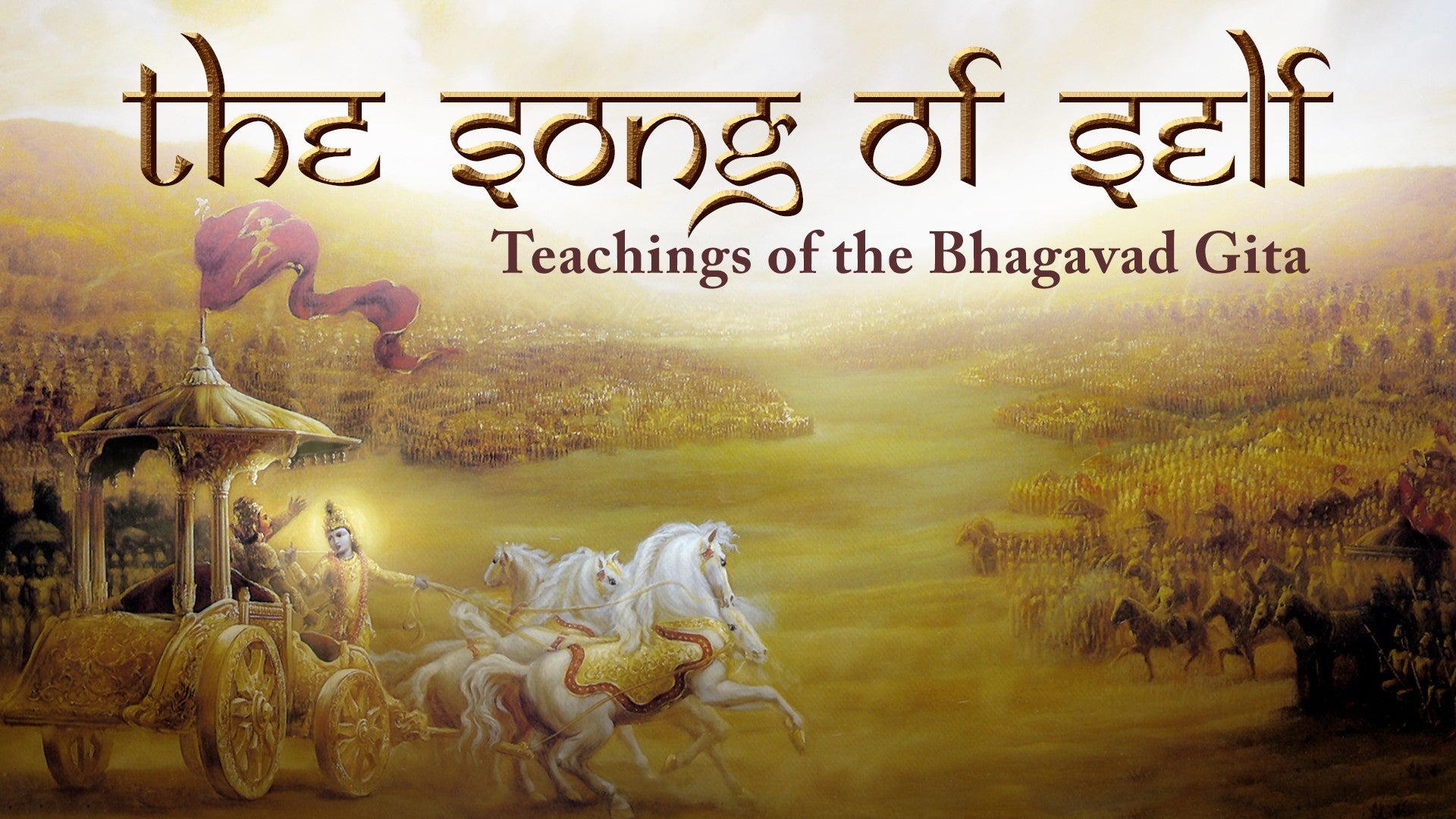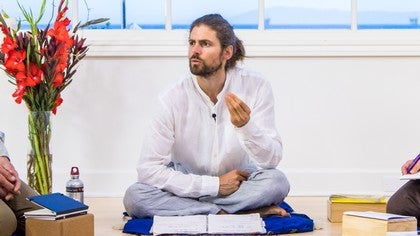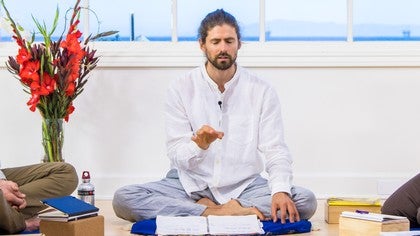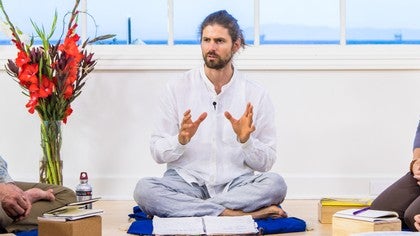Description
About This Video
Transcript
Read Full Transcript
And Krishna continues with the 61st verse, talking more about this power of the senses and giving some more indications of ways we can work with them. He says, So again, the verse ends, so Krishna is continuing to give this description of the steady, established, wise one. So he says, tÄ쳌ni sÄ쳌ravÄ쳌nÄ« sÄ쳌nyam yÄ쳌. So tÄ쳌ni sÄ쳌ravÄ쳌nÄ« refers back to the previous verse, all of these, all of these words, all of these powers of the senses, which can be potentially disturbing and stir things up. So Krishna says, tÄ쳌ni sÄ쳌ravÄ쳌nÄ« sÄ쳌nyam yÄ쳌, one who has brought about the sÄ쳌nyamÄ쳌 of all of these. SÄ쳌nyamÄ쳌 is an important word in yogic teachings. Yama, we've already mentioned, it's that idea of harnessing the power, of bringing things under, let's say, conscious awareness, so we can deploy it in a skillful way. SÄ쳌nyamÄ쳌 means very well harnessed. SÄ쳌nyam yÄ쳌 means having very well harnessed the powers of all of the senses and the Indriyas, the bodily powers too. Yukta, now yukta means and become connected.
Asita sitting, mat paraha, mat me, paraha as the highest. So Krishna says, having well harnessed the powers of all of the bodily and sensory organs, sitting steadily, connected to the idea of me as the highest, quickly, that person's IndriyÄ쳌ni, that person's bodily and sense organs and powers, they come under that person's willful control and then that person can be described as as sita prÄ쳌gya yogin. So, thinking of me as the highest, what is Krishna saying? Thinking or contemplating me as the highest. So sometimes people interpret this verse in a particular way and they say, oh, whatever you do, you must think of Krishna, the blue-skinned, the flute-playing God, for example. Krishna has many aspects and the archetype of Krishna is a very beautiful and deeply rich one with so many different aspects to it.
But some people don't particularly resonate with the archetype of Krishna. But who is Krishna here? Krishna we've already mentioned, it means black and it also means that which is alluring. So Krishna is the voice of the deep wisdom and the voice of deep conscience. So what he's saying, he's already really told us, he's reiterating what he's told us. Your senses can be very powerful but if you turn them back to their source then you can let them be your support rather than your problem.
So he's saying having well harnessed that power so it's serving the whole and thinking of me as the highest, in other words, dedicating or channeling the sense experience towards that which is highest for us, towards that which is conducive to our own sustained well-being, towards that which is allowing us to become more attuned to the steady consciousness. If we do that then quickly, readily, the potentially troubling powers of the body and senses become far less troubling and we become more steadily established. So here he's starting to introduce, one might say, this concept of Isvara Pranidhana which is a concept that comes up quite a lot in yoga teaching and it features quite prominently in Patanjali Yoga Sutra and it's also associated with this idea of Bhakti or devotion. Now what does it mean to be devoted? I would suggest that really the idea is it means that you are offering yourself towards something, towards an ideal.
Like you might, let's say if you love your job and you work for an organisation or a company you really appreciate the values of the organisation or company, you respect your colleagues, you might be a devoted worker, meaning that when you work there you do so very wholeheartedly. Sometimes people talk of a devoted father or mother, the idea being they're always thinking about the needs of their children. So devotion means that like elevated and heightened degree of steady loving presence. So if you do resonate with the idea of Krishna as God or any idea of something as God, if you make your actions offerings to that it can very readily serve as a powerful reminder that you want to do whatever you're doing in a gracious way, in a graceful way, in a respectful way. So in Bhakti Yoga, the Yoga of Devotion, one thing that they advocate is that everything that you do, let it be an offering to that which you consider the highest.
And everything that you receive, remember that it's a gift from God or from consciousness or from nature. It's a gift and it's up to you to use it appropriately. So if we have this attitude, it's really reminding us or prompting us to be very recognisant and very respectful, whoever and whatever we encounter. So here Krishna is saying, the sense is, he's told us, even when you are an earnest, sincere seeker they can still be troubling. But if you harness those powers and channel them towards your highest ideal then quickly they will, let's say, fall in line.
Quickly they will learn the joy of working together. Like those horses who have experienced what it means to work as a cohesive unit.
The Song of Self: Bhagavad Gita: Chapter 2
Comments

You need to be a subscriber to post a comment.
Please Log In or Create an Account to start your free trial.








